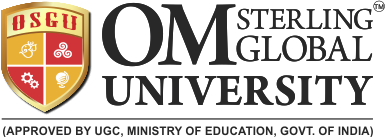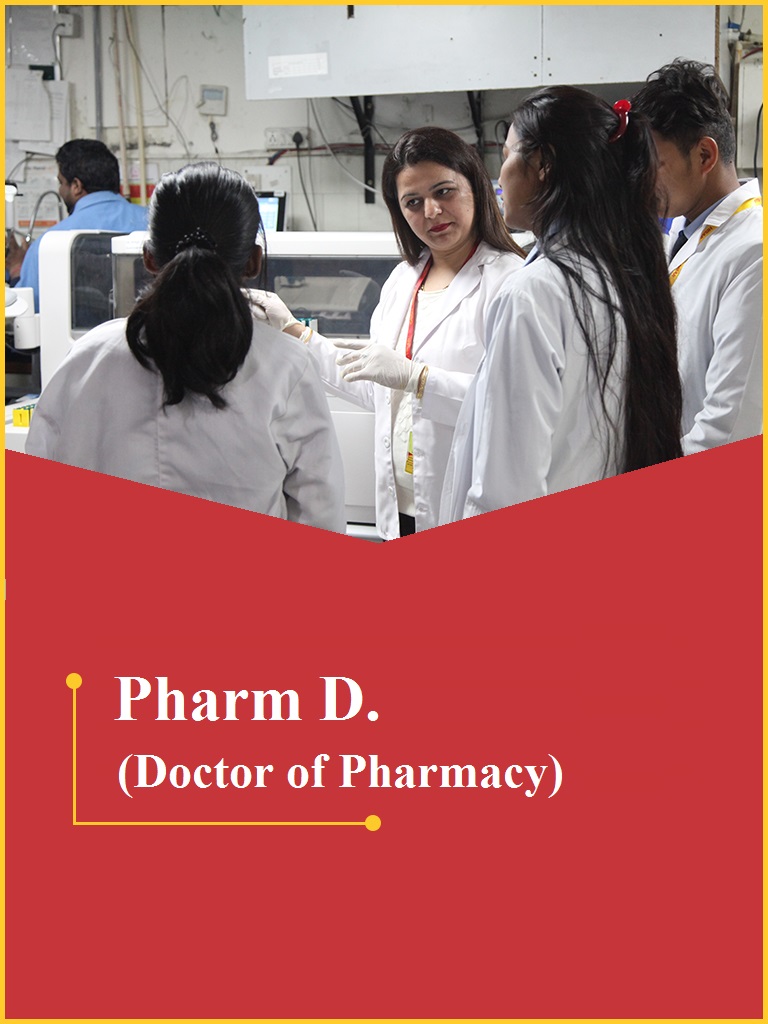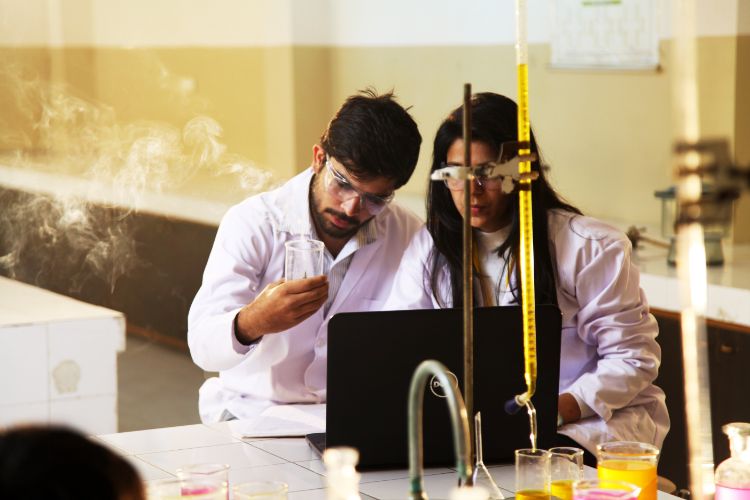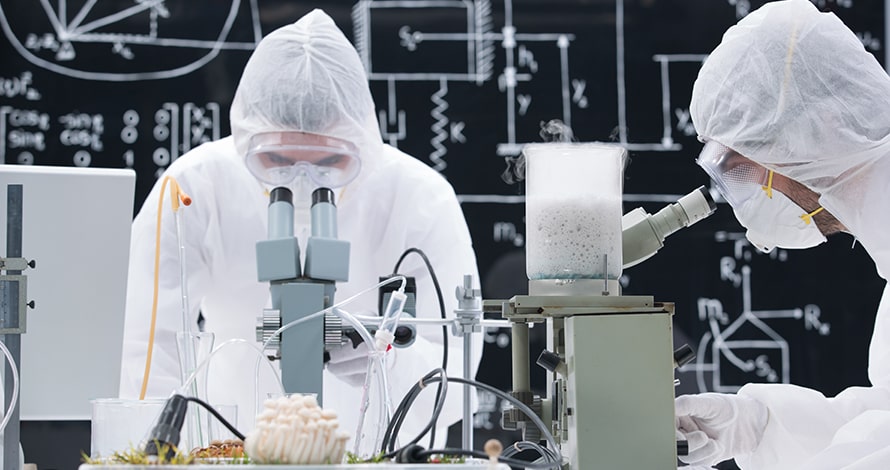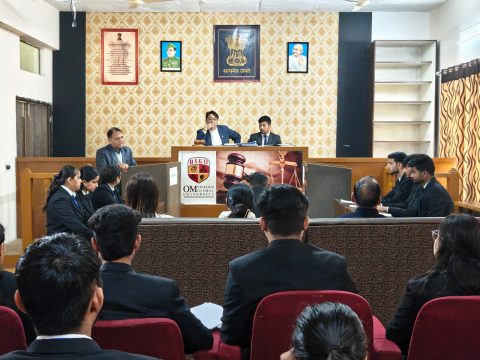
04

Graduate

3 Years
Programme Overview
Pharm.D. (Doctor of Pharmacy) is a pharmacy degree program approved by the Indian government in 2008, with the Pharmacy Council of India serving as the regulating body. This course was created to prepare pharmacists to be valuable healthcare team members regarding patient care. The aim is to improve clinical pharmacy services in India It is a doctorate level degree obtained in pharmacy school by prospective pharmacists, similar to an MD for a physician. unique features of Pharm D include- eligibility to register for Ph.D., prefix ‘Dr.’ to name and a registrable qualification after completion of course. Pharm.D. is a 6-year curriculum in which the first five years are spent studying, and the sixth year is spent doing an internship in a hospital. The period of six years duration is divided into two phases
Phase I – consisting of First, Second, Third, Fourth and Fifth academic year.
Phase II – consisting of internship or residency training during sixth year involving posting in speciality units.
Pharm.D. (Post Baccalaureate) is a three-year curriculum that consists of two years of study and one year of hospital internship. The period of three years duration is divided into two phases Phase I – consisting of First and Second academic year.
Phase II – consisting of Internship or residency training during third year
Programme Objectives
The Pharm. D (Doctor of Pharmacy) course was introduced by Pharmacy Council of India with the aim to improve clinical pharmacy services in India. After completing this program, student will be able to
- Impart knowledge of chemical, biological, social, and clinical sciences in pharmacy.
- Provide high-quality pharmaceutical care with focus on patients and optimal health outcomes as the primary goals
- Discuss the ethical and legal issues related to pharmacy practice.
- Discuss the principles, practices, and responsibilities of pharmacy practice within a community setting.
- Explain how pharmacy services are provided in pharmacies.
- Describe the scope of practice for pharmacists.
- Describe the roles and responsibilities of an intern pharmacist. Train students to participate in direct hospital-based patient care.
Programme Outcomes
After Completion of the programme, the students would be able:
- To understand the clinical aspects of drug development, such as phases, ethical issues, and roles and responsibilities of clinical trial personnel, design of clinical study documents, data management and safety monitoring in clinical trials.
- To Impart fundamental knowledge about physiology, microbiology, organic and inorganic chemicals, biochemistry, Pathophysiological and Pharmacological of allopathic and natural drugs
- Impart knowledge on pharmacological and toxicological aspects of various class of drugs, radiation, heavy metals, plant, foods and Venoms.
- To understand total quality management, quality review and documentation and study of regulatory bodies pertaining to regulatory environment
- Dispense drugs, ensure safe medication usage, patient counselling and improve patient care in a community pharmacy set up.
- To enhance practical clinical discussions, attending ward rounds, follow-up progress of patients, and case presentation at discharge through hospital postings.
- Present Case studies and auditing of prescription.
- Organize hospital camps, disease awareness programs
Career Path
Career scope in the field of pharmacy is huge. After completing the Pharm D. course, students can choose for a P.hD programme. Pharm D programme provides candidates with the skills and knowledge of various practices carried out in clinical as well as commercial settings of production of medicinal drugs. Individuals enrolled in the PharmD, learn about the diagnosis and treatment of various diseases through medicinal drugs. There is a high number of employment available for Pharm.D course graduates in medical coding, medical billing, and the health insurance organisations. They are required to work with doctors, and pharmacists which bring them a sense of responsibility for the medication therapy management. They help support daily practices of pharmacists by supporting in their preparation of prescriptions, assisting with problem solving, and helping out with the daily running and on-going programs of the pharmacy.
Popular Pharm.D (Doctor of Pharmacy) job profiles
- Pharm.D (Doctor of Pharmacy) graduates will find employment in both the public and private sector organisations.
- Drug Inspector
- Health Inspector
- Pharmacist
- Academics
- Pharmaceutical companies
- Multi-specialty hospital
- Research Scientist
- Regulatory Affairs Manager
- Quality Assurance Pharmacy Manager
Eligibility Criteria
Minimum percentage and others criteria for admission will be as per UGC/ Concerned Regulatory Bodies.
Provided below are the criteria that need to be met for the given course.
For National Students
Pharm D. (PB)
- Pass in B. Pharmacy
For International Students
- Rule framed by University Grants Commission (UGC) and notified in its website www.ugc.ac.in will be followed for deciding the eligibility and admission of International students to various courses offered in Om Sterling Global University, Hisar.
Programme Syllabus
The syllabus of the program plays a major role in how the students turn out for the profession. The syllabi drafted by OSGU are detailed and cover the necessary components to ensure a complete and overall education of the students. Given below is the syllabus for B Pharmacy.
First Year
| S.No. | Subject |
|---|---|
| 01. | Pharmacotherapeutics-III |
| 02. | Hospital Pharmacy |
| 03. | Clinical Pharmacy |
| 04. | Biostatistics & Research Methodology |
| 05. | Biopharmaceutics & Pharmacokinetics |
| 06. | Clinical Toxicology |
| S.No. | Subject |
|---|---|
| 07. | Pharmacotherapeutics-III Practical |
| 08. | Hospital Pharmacy Practical |
| 08. | Clinical Pharmacy Practical |
| 09. | Biopharmaceutics & Pharmacokinetics Practical |
Second Year
| S.No. | Subject |
|---|---|
| 01. | Clinical Research |
| 02. | Pharmacoepidemiology and Pharmacoeconomics |
| 03. | Clinical Pharmacokinetics & Pharmacotherapeutic Drug Monitoring |
| 04. | Clerkship * |
| 05. | Project work (Six Months) |
* Attending ward rounds on daily basis
| S.No. | Subject |
|---|---|
| 06. | Project work (Six Months) Practical |
Third Year
Internship or residency training including postings in speciality units. Student should independently provide the clinical pharmacy services to the allotted wards.
(i) Six months in General Medicine department, and
(ii) Two months each in three other specialty departments
How to Apply
Any queries you have about the admissions and related matters, you can fill out the Admission Enquiry form; if you are unable to make a decision on deciding the program, book a free tele-counseling session with us; If you are sure about a program you are enrolling for, you can go ahead fill out the online application.

